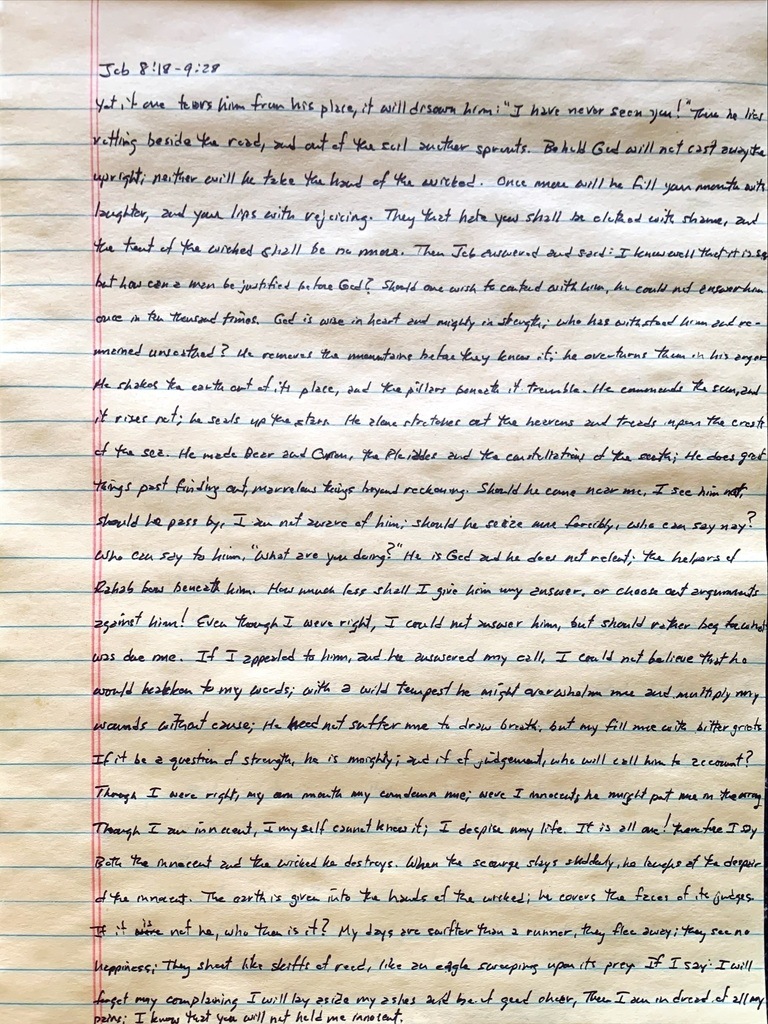Job’s Fatalism

Synopsis Job 8:18-9:28 5/27/2021
After Job voiced his complaint against God, his friend Bildad spoke. Bildad argued that God is just. Specifically, he described how God doesn’t cast away the upright. And, he doesn’t help wicked people.
Job responded by observing that man has no recourse against God. There is no arbiter who can hold God accountable. And so, Job’s conclusion was that God can do whatever he wants to do because he is God. He is irresistibly powerful. And His justice is subordinate to His power.
As a result, no man can even know his own righteousness with confidence. Therefore, as Job began to see it, nothing really matters. In the end, everyone dies.
Job’s Fatalism
His experience brought Job to the fatalist dilemma. If nothing is under his control, why should he be held accountable? And, if nothing is under his control, then why should he bother trying?
Job’s world was out of control. In fact, he experienced great loss and unimaginable suffering. But in his complaint, he did not seem to recognize that he still had control of his thoughts. He never lost this ability.
Fatalist Dilemma
Nothing shows my convictions as much as my acting.
Sometimes I think of my body as an antenna. It receives signals from my environment. But it also gives off signals to my environment. What I am thinking in my mind is only made manifest to the world through the acting of my body.
So, the place of my control is in my mind – in my soul. I own that. As long as I am conscious, it remains my exclusive domain. There is nothing determined here – nothing fatal.
And that is why God wants my heart. Because only I can give it.
“Do not conform yourselves to this age but be transformed by the renewal of your mind, that you may discern what is the will of God, what is good and pleasing and perfect.” Rom 12:2

